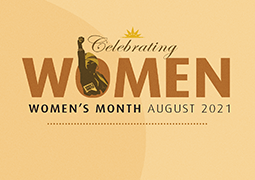
Parliament has completed a review of the 1994 Women’s Charter, which has in turn led to the formation of the 2021 Women’s Charter for Accelerated Development: Setting a New Vision and Agenda to Advance Women’s Equality, Growth and Development.
This initiative, which reflects on the 27-year history of the charter, builds on the foundation left behind by the progressive women of 1954, who began the fight for women’s rights in South Africa. Making opening remarks on the occasion of the virtual launch of the reviewed Charter, Deputy Speaker of National Assembly, Mr Lechesa Tsenoli said: “This milestone event took place at a time when as a country we are faced with a growing concern of gender-based violence and impact thereof on our society. There’s an urgency to look at our conduct and our legislation to ensure that they have an effect on the lived experiences of women.
In making his opening remarks, the Chairperson of the National Council of Provinces (NCOP) Mr Amos Masondo, said the launch of the review Women’s Charter takes place at a year in which South Africa celebrates the legacy of trail blazer Charlotte Maxeke. “As we salute her, we salute all women who fought tirelessly for the doctrine and value of gender equality, justice and human rights.”
Mr Masondo said 27 years since the inception of our democracy, “we have come up with instruments, institutions, interventions and legislation meant to mainstream gender equality and bring about women emancipation and economic empowerment”. Parliament needs to ensure “that the principles of equality are embodied in our legislation on customary laws and property rights. And that women are protected from all form of abuse and sexual assault, but also to ensure that they economically empowered.”
The review of the charter has provided a tool to overhaul the gender machinery to ensure that gender equality finds full expression in government and in civil society. Like Maxeke, Mr Masondo said, “we must advance women’s rights in all fronts be it in education, churches, union, or civil society”.
The Deputy Chairperson of the NCOP, Ms Sylvia Lucas, said the review of the Charter arrived at some key findings, including the lack of implementation of existing legislation on gender equality in government and the dysfunctional nature of the current gender machinery. In addition, the review revealed an absence of fiscal commitment to gender targets, policy proclamations or legislation. Furthermore, there is no systemic evaluation or monitoring of gender targets, proclamations or legislation and no consequences for when these are omitted or transgressed.
The Chairperson of the Portfolio Committee on Multi-Party Parliamentary Caucus, Ms Khensani Bilankulu, said: “We must play an active role to ensure that women’s priorities are addressed through the legislative or oversight processes. I urge the member of the women caucus to be vigilant in upholding women’s interest in their respective committees. As a women caucus we must inspire change, until change becomes a reality.”
Ms Rosina Semenya reiterated that the Women’s Charter is a lasting legacy for gender equality and a blueprint for women’s emancipation. It’s through this charter that we are reminded of our inferior status in society due to discriminatory laws and prejudices meted against women and the urgency to change that.
The National Convener of the South African Progressive Women’s Movement and Deputy Minister for Women, Youth and Persons with Disabilities, Prof Hlengiwe Mkhize said: “Let’s embrace the Women’s Charter as a stepping stone for our activism . . . In our endeavours, let’s ensure that no one woman is left behind and let’s remind each other that poverty is women’s worst enemy, it’s a threat to women’s security. And we can overcome our challenges through our collective activism.”
In her pledge, Ms Khan Sharif, said: “If we don’t enhance gender sensitive policies and legislation, this charter will remain a mere document that serves no purpose and that has no meaning to women,” she continued.
Ms Natasha Ntlangweni said: “Let’s refuse to be the pawns of men, let’s demand our economic emancipation in our lifetime to ensure that the coming generations of women are economically free. Let’s advocate for the full economic development of women. As women, we need access to land and markets for our own development. We don’t want to be pawns for men anymore.”
Ms Zanele Nkomo said: “We talk of economic emancipation when political parties that promulgated gender parity laws here at Parliament have not yet met the 50/50% representation. Let’s urge all political parties to implement this commitment if they are serious about gender equality.”
Ms Marie Suckers said the document is a profound one. “Back in 1954, it reached into the future of economic injustices that generations of women where likely to endure if gender equality was not addressed. We can attest to that today that the human cost of poverty that is a result of gender injustices is shouldered by women. Despite all that, let’s embrace this document “for upholding the virtue and value of women emancipation.”
Abel Mputing
23 August

